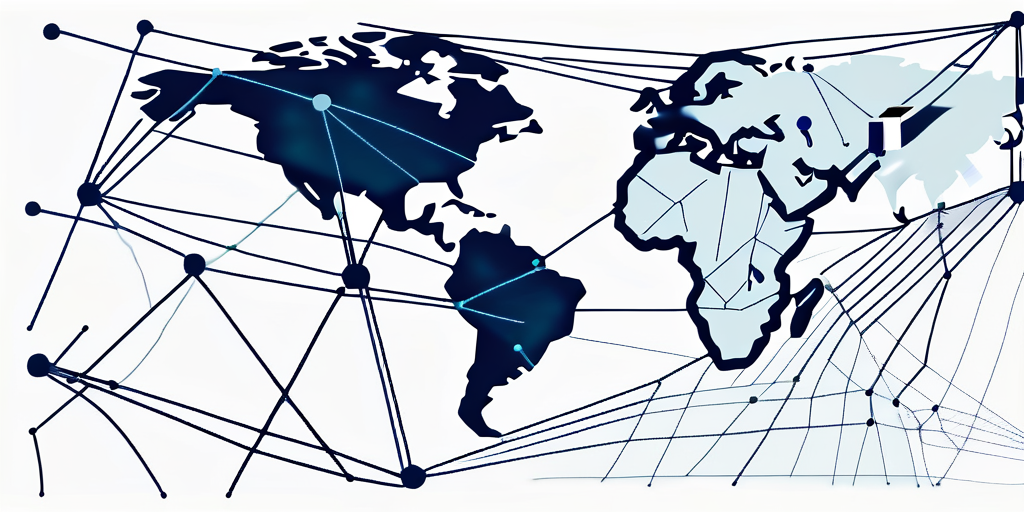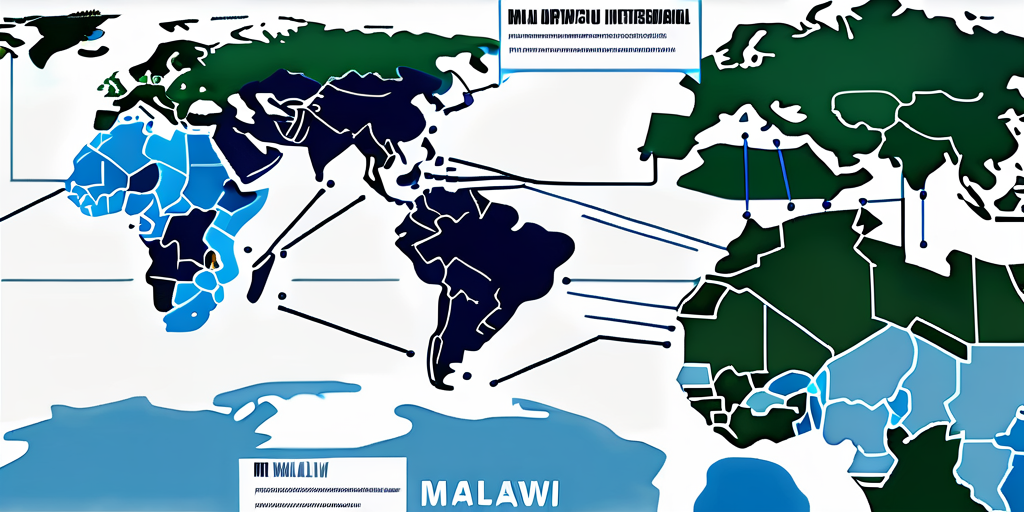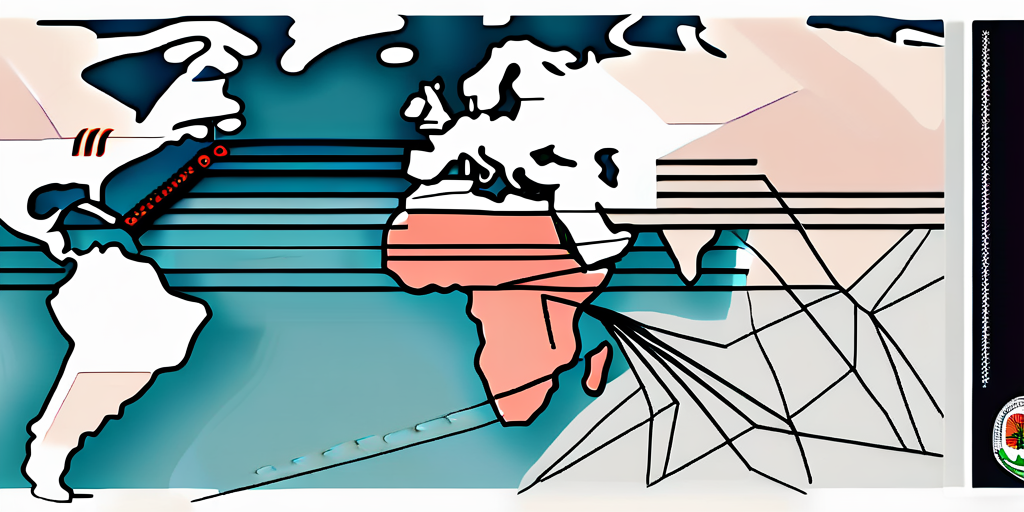Malawi’s engagement with Interpol’s global network has played a crucial role in enhancing the country’s security and justice systems. By understanding Interpol’s global network and partnering with the organization, Malawi has been able to strengthen its law enforcement capabilities and collaborate on key issues pertaining to transnational crime.
Understanding Interpol’s Global Network
Interpol, short for the International Criminal Police Organization, is a global network that facilitates international police cooperation. Established in 1923, its primary goal is to promote and enhance the effectiveness of law enforcement agencies worldwide. Interpol acts as a platform for sharing information, conducting cross-border investigations, and coordinating operations to combat various forms of crime collectively.

The organization’s network comprises 194 member countries, each represented by their national law enforcement agencies. Through this network, member countries can exchange intelligence, issue alerts for wanted criminals, and seek assistance from other nations in apprehending suspects. Interpol plays a pivotal role in fostering collaboration, enabling its member countries to address transnational threats collectively.
The Role and Function of Interpol
Interpol serves as an invaluable resource for law enforcement agencies worldwide. Its primary function is to provide support to member countries in preventing and combating transnational crime. The organization facilitates international cooperation through various mechanisms, including the sharing of criminal intelligence, operational support, and capacity building.
One of the key roles of Interpol is to maintain databases that store information on wanted persons, stolen passports, and stolen vehicles. These databases enable law enforcement agencies worldwide to access critical data and take necessary action, ensuring the swift apprehension of suspects.
Interpol’s Reach and Influence
Interpol’s influence extends globally, with its network spanning across all continents. This vast reach allows member countries to tap into a wealth of resources and expertise to tackle complex international crimes such as terrorism, drug trafficking, human trafficking, and cybercrime.
The organization’s influence becomes even more apparent in cases involving multiple countries. Through Interpol’s coordination and support, law enforcement agencies can collaborate efficiently, leveraging shared intelligence and operational expertise. This collective effort significantly enhances the chances of successful investigations and prosecutions.
Malawi’s Partnership with Interpol
Malawi’s partnership with Interpol has proven to be instrumental in strengthening its law enforcement capabilities and combating transnational crime. The initiation of this partnership has paved the way for key collaborative efforts that have had a profound impact on the nation’s security and justice systems.
The Initiation of the Partnership
The initiation of Malawi’s partnership with Interpol marked a significant step in the country’s commitment to combating transnational crime. Recognizing the challenges posed by these crimes, Malawi sought to leverage Interpol’s expertise and global network to enhance its own capabilities.
In 1995, Malawi formalized its partnership with Interpol by becoming a member country. This membership granted Malawi access to Interpol’s resources, including its databases and information-sharing platforms. By joining Interpol, Malawi demonstrated its willingness to collaborate with international partners to tackle crimes that transcend national borders.
Key Collaborative Efforts
Since partnering with Interpol, Malawi has actively collaborated with the organization on various fronts. Joint operations, capacity building initiatives, and information sharing have become integral components of the partnership, contributing to a significant positive impact on Malawi’s security.
One such collaborative effort involves the fight against wildlife trafficking. Malawi, like many countries in Africa, faces the challenge of poaching and illegal wildlife trade. Through its partnership with Interpol, Malawi has been able to leverage the organization’s resources and expertise to combat this crime effectively. By sharing intelligence and coordinating operations with other member countries, Malawi has made notable progress in curbing wildlife trafficking.
Impact of Interpol’s Network on Malawi
Enhancing National Security
The impact of Interpol’s network on Malawi’s national security cannot be overstated. Through collaboration with Interpol and other member countries, Malawi has been able to thwart cross-border organized crime and apprehend individuals involved in transnational criminal activities.

For instance, through the sharing of intelligence and joint operations, Malawi’s law enforcement agencies have successfully dismantled international drug trafficking networks operating within the country. This has not only disrupted the supply chain of illicit drugs but also sent a strong message that Malawi is committed to fighting the drug trade.
Strengthening Legal and Judicial Systems
Malawi’s engagement with Interpol’s network has also yielded positive outcomes for its legal and judicial systems. Through collaboration with international partners, Malawi has been able to build capacity in investigating and prosecuting transnational crimes.
Training programs and workshops conducted by Interpol have equipped Malawian law enforcement officers, prosecutors, and judges with the knowledge and skills necessary to handle complex international cases. This has ultimately strengthened Malawi’s legal system and its ability to bring perpetrators of transnational crimes to justice.
Challenges in Malawi’s Engagement with Interpol
Resource Constraints and Solutions
Despite the benefits of engaging with Interpol’s network, Malawi continues to face resource constraints in fully capitalizing on the partnership. Limited funding and logistical challenges hinder the country’s ability to participate in certain Interpol initiatives and cover all areas of transnational crime effectively.

However, Malawi has sought solutions to overcome these challenges by actively engaging in resource mobilization efforts. The government has prioritized allocating resources to enhance its law enforcement capabilities, recognizing the importance of addressing resource constraints for effective engagement with Interpol.
Addressing Legal and Cultural Differences
An additional challenge that Malawi faces in engaging with Interpol is navigating the legal and cultural differences that exist between member countries. The variation in legal systems and cultural norms can sometimes complicate cooperation on cross-border cases.
Recognizing these challenges, Malawi has taken steps to bridge these gaps. The government has facilitated exchanges between law enforcement officials from different countries, fostering a better understanding of legal and cultural nuances. This proactive approach has helped to overcome many of the obstacles that arise when operating in a diverse multinational environment.
Future Prospects of Malawi’s Engagement with Interpol
Potential Areas for Further Collaboration
The future prospects of Malawi’s engagement with Interpol hold promise for further collaboration in various areas. It is crucial for Malawi to continue exploring opportunities to partner with Interpol and tap into the organization’s network and resources.
Areas such as cybersecurity, money laundering, and counterterrorism present potential avenues for enhanced collaboration. Malawi can benefit from Interpol’s expertise in these areas, which are becoming increasingly relevant in today’s global landscape.
Long-term Implications for Malawi’s Security and Justice System
The long-term implications of Malawi’s engagement with Interpol’s network are far-reaching. By actively participating in Interpol’s initiatives and leveraging the organization’s network, Malawi can bolster its security and justice systems significantly.
Through sustained collaboration and continuous capacity building, Malawi will be better equipped to tackle transnational crime and protect its citizens. This engagement will not only enhance Malawi’s reputation as a responsible member of the global community but also contribute to the overall stability and prosperity of the nation.
In conclusion, Malawi’s engagement with Interpol’s global network has been invaluable in enhancing the country’s security and justice systems. By partnering with Interpol, Malawi has been able to access a wealth of resources and expertise, enabling it to effectively combat transnational crime. Despite challenges, Malawi continues to work towards addressing resource constraints and bridging legal and cultural differences. The future prospects of this engagement hold promise for further collaboration in various areas, with long-term implications for Malawi’s security and justice system. Through sustained engagement with Interpol, Malawi will continue to strengthen its position in the fight against transnational crime and contribute to a safer and more just society.
